Books I Read In 2022
2022 was the most bookish year of my life so far. This is likely a result of a habit I cultivated this year: First waking hour (or so) of my day, I would only do something that employed a long attention span. Most days, that simply meant continuing the book I'm reading.
This was a welcome change to what I used to do: Browse social media even before I got out of bed. I am glad to have noticed this harmful pattern and quit.
I also had my e-reader with me everywhere I went. I am sure it contributed a lot to my reading time.
FICTION
"Small Gods" by Terry Pratchett
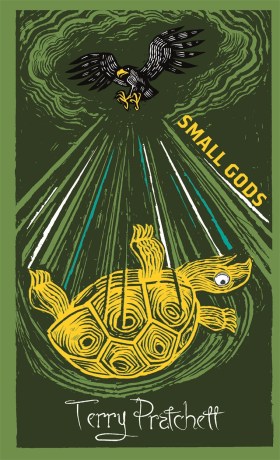
Discworld consistently features in almost everyone's "top fantasy series of all time" list. "Small Gods" was recommended to me as an entry point - and what a fantastic start this was! The book delivers a sharp, yet gentle, critique on religion and its institutions. A heavy topic, yet it's handled with such ease and witty humour.
"Mort" by Terry Pratchett

I decided to go down the "Death" sub-series in Discworld next. I'm used to the anthropomorphisation of Death through Indian myth and folklore; this was still a fresh treatment. Funny, sometimes philosophical - those are my expectations going into this sub-series. It didn't exactly blow my mind, but I am still excited for the next book.
"Project Hail Mary" by Andy Weir
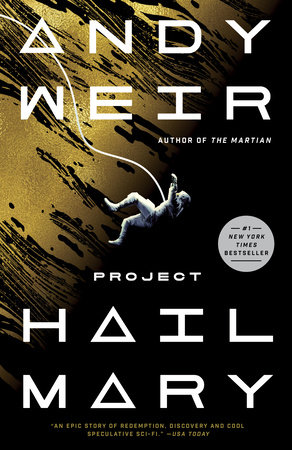
Allow me some hyperbole - this is probably the freshest (and nerdiest) Sci-Fi novel on bookshelves right now. It weaves a highly engaging storyline with applied problem-solving. Some characters and dialogue are a bit clunky - the prose used for 'Earth' storyline felt amateurish. That didn't hinder my investment in the story, or the fun.
"The Satanic Verses" by Salman Rushdie

When I read the unfortunate news of the author being attacked (again), I got highly curious about how a mere book can cause such hatred. During what was an enjoyable read, I came to understand what could have garnered such a reaction - I have witnessed (and continue to witness) enough religious fanaticism. Other than that, I found this novel artfully written (especially the prologue). Apart from Faith, the book deals with many other themes - Indian identity, racism, love. As for criticism, I must mention the portrayal of women sometimes becomes a case of "men writing women". It also has a somewhat fizzling ending, but I found the real sauce to be in the prose. This makes me want to read "The Midnight's Children" again.
"The First Law Trilogy" by Joe Abercrombie
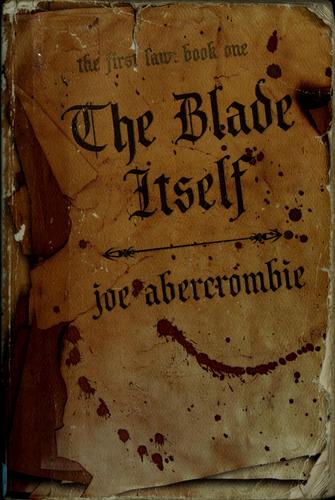
Top-tier character writing. If you are a student of fantasy literature, this should be in your syllabus. Having said that, I felt the ending of the trilogy to be unsatisfying. It left a lot of subplots unfinished (which are explored in later books, but then advertising these books as 'trilogy' feels like false advertising). Personally I felt I needed a break from 'wars' in fantasy worlds altogether, especially since a real war broke out around the time I was reading these books. It will be a long time before I pick up another book from the author, or another grim-dark novel for that matter.
"Work in Progress" by Dan Brotzel, Martin Jenkins, Alex Woolf

I actually laughed out loud on multiple occasions while reading this book. The story is told through a series of emails about a writers group, a refreshing approach to storytelling. This format also makes it an easy-to-consume experience. The characters are hilarious, the situations they get each other into are hilarious, the writing is hilarious. It's one of those books I keep recommending to everybody who expresses a hint of interest in comedy books.
NON-FICTION
"Art & Fear: Observations on the Perils (and Rewards) of Artmaking" by David Bayles, Ted Orland

This book has fundamentally changed the way I engage with, and reflect upon, Art. Art is a big part of my life, so it's not an exaggeration to conclude that this was a life-changing book. I will definitely be re-reading this book countless times in my future. I am forever thankful to the person who shared "the story of ceramic teacher" snippet from the book which got me interested. An inspiring, hope-inducing book for everyone.
"Why Your Five Year Old Could Not Have Done That" by Susie Hodge
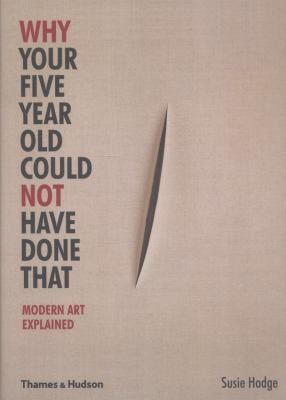
Modern art often elicits a certain dismissive attitude from the general public, myself included. I went into this book expecting to get cured of it. I wasn't expecting everything to suddenly make sense within a single book, but I wanted to get educated, at least. I'm afraid this book failed at that. It is certainly a beautiful book with gorgeous photos of the artwork being discussed, but the explanations given in response to the titular question were inadequate, and may have left me more cynical than before. (Thankfully I read "Art and Fear" later, which somehow both validated, and corrected my negative mindset)
"The Design of Everyday Things" by Donald Norman
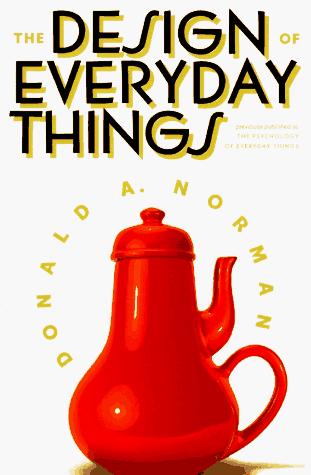
This is one of those books I wish I had read a decade ago. It is filled with valuable insights for anyone who partakes in the act of creation and design - so filled, in fact that I don't think a single pass-through is enough for me to get a full value from this book. So some re-reads are in order. Good design gets out of your way, so it is often unnoticed. Having read this book, I think I am able to notice good designs and appreciate them more. During and after I read the book, I experienced a certain 'high', where I looked at the world differently. "There are no Human Errors, only bad design"
"The Hungry Brain: Outsmarting the Instincts That Make Us Overeat" by Stephan Guyenet

The book is more than what the title would suggest, it is useful for anyone trying to be conscientious about their food intake. It is a rich source of concentrated information about how nutrition works psychologically and biologically (and how the food industry is constantly trying to seduce you into eating their product, which is often unhealthy). Whatever I knew about the subject were scattered pieces of data points acquired from the Internet (not a great source for the topic). One's eating habits are a result of evolution and environment - and this book elaborates on that fact, giving you the latest available information humanity has as of today.
"(Re-read) "How to Win Friends and Influence People"" by Dale Carnegie
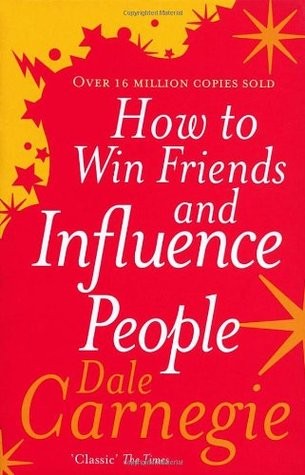
Probably the most recommended book in the software world, it sometimes drives people away due to negative connotations associated with the word "influence". My experience with the book is actually the opposite - last time I followed the advice from the book, I felt like I was being taken advantage of, what with my brand new highly agreeable attitude. So the book poses an opposite danger! The advice given in the book works amongst people who are generally cordial. That was the case for the new workplace I was joining - so I gave this book a re-read. The most useful information takes up only half of the book, since you can safely skip the 'examples' that follow each advice.
"(Re-read) "Less is More: How Degrowth Will Save the World"" by Jason Hickel

There is professional therapy available for people who suffer from climate anxiety, but I would say this book is the next best thing. Reading this fills me with genuine hope towards the future. It also provides a direction towards fighting the climate emergency, on both individual and collective levels. I re-read this book to create revisable notes.
"(Re-read) "Getting Things Done: The Art of Stress-Free Productivity"" by David Allen

Another book I re-read ahead of joining a new workplace, while I created revisable notes along the way. I was also migrating my GTD system to legendapp. Migrating to a new system is always a perfect opportunity to go through this book again. I possibly cannot state the importance of this book more than what has already been said elsewhere on the internet, it is another one of those literally life-changing books, at least in my case.
"(Re-read) "The Sense of Style"" by Steven Pinker

Another book I re-read to create notes so I can revise the concepts in future. The author has taken some weird ideological stances as of late, so one might feel uneasy reading one of their books. To that, I can assure you that the book doesn't contain any sociological hot takes - this book is from 2014 and also pertains to their area of expertise. I maintain that this is a great style guide for anyone whose predominant mode of communication is writing - which I feel is true for almost everyone reading this.
SOFTWARE
"Programming Elixir >= 1.6" by Dave Thomas

I fell in love with Elixir this year. This book is probably the biggest reason for that. Not only that, I also feel this was the best introduction to Functional Programming I could have gotten. It was like opening my brain to another dimension. Needless to say, most of my new pet projects are in Elixir.
"Learn Functional Programming with Elixir" by Ulisses Almeida

This book is a great resource for beginners. I read this after the Dave Thomas book, however, which rendered a lot of information in this book a bit redundant. To the book's credit, it does provide an alternate perspective, is very easy to follow, has exercises, and quick to finish.
"Designing Elixir Systems with OTP" by James Edward Gray, II and Bruce A. Tate

This might be the first "Architecture" book I felt myself enjoying, and not pushing through. I think I have begun to appreciate the beauty of good project architecture, thanks to this book. The book took my elixir practice to a next level. An authoritative and highly practical book.
"Ansible for DevOps" by Jeff Geerling

A quick refresh of Ansible was needed so I could train others. If your project uses Ansible, this book is a no-brainer. Lots of people would reduce a lot of pain in their work life if someone gave them distilled points from this book. In my view it's equivalent to the bible of Ansible.
POETRY
"Ireland's Heart: Best Loved Poems of W.B. Yeats" by Gill Books and W.B. Yeats
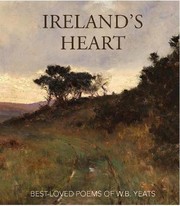
Understanding poetry is an advanced "level" while learning a new language. With English, I do not think I'm at that level yet. I can get through simplistic poems now and then, but W.B. Yeats, Seamus Heaney, all the other big names stay out of my reach. I am still in pursuit of achieving this level, and bought this book on an impulse. If nothing else, this book is a beautiful object - the poems are accompanied with high quality reproduction of images from the National Gallery of Ireland. I did find myself 'clicking' with quite a number of poems, and felt good about it. I identified the root cause of my prosaic affliction - if I encounter an unfamiliar word, it throws me out of the 'zone', which is needed to enjoy poetry. As with a lot of celebrated art, one needs the contextual information beforehand to be able to enjoy consuming it. The book helpfully provides the necessary context with Yeats' poems. I honestly wish this was the case for most critically acclaimed art.